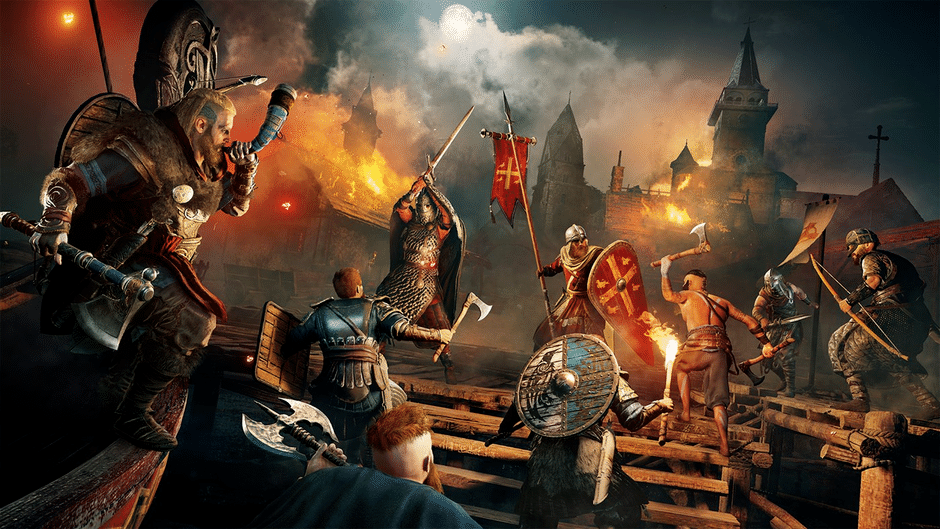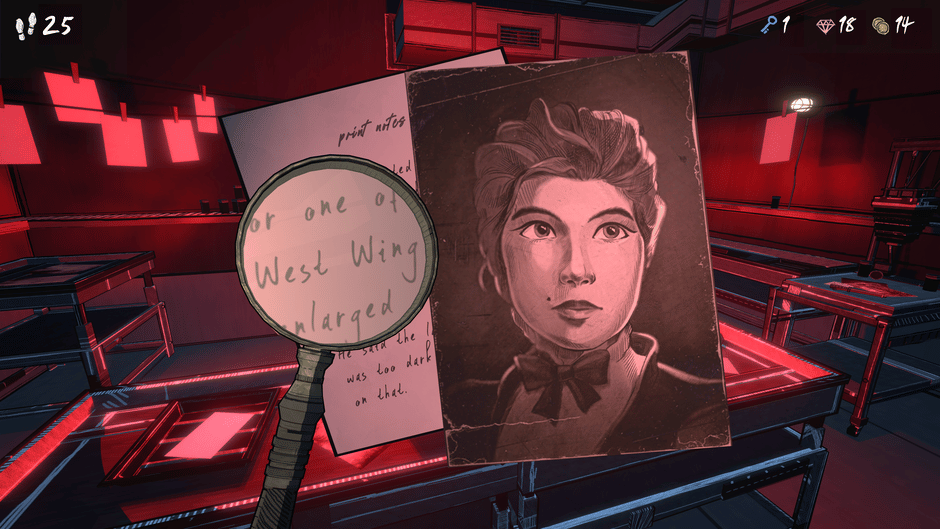Assassin's Creed Game List: Every Main Title in Order
The Assassin's Creed franchise has redefined historical action-adventure gaming since its 2007 debut. Spanning ancient civilizations, Renaissance Europe, and beyond, the series blends rich storytelling with stealth-based gameplay.

The Assassin's Creed franchise has redefined historical action-adventure gaming since its 2007 debut. Spanning ancient civilizations, Renaissance Europe, and beyond, the series blends rich storytelling with stealth-based gameplay. Whether you’re a newcomer or a seasoned fan, navigating its sprawling timeline can be daunting. This guide breaks down every mainline Assassin's Creed game in release, historical, and modern-day story order, helping you choose the best path through this iconic series.
Assassin's Creed Games in Release Order
Playing the games in release order lets you experience the evolution of gameplay mechanics and narrative depth. Here’s the full list:
- Assassin's Creed (2007)
- Assassin's Creed II (2009)
- Assassin's Creed: Brotherhood (2010)
- Assassin's Creed: Revelations (2011)
- Assassin's Creed III (2012)
- Assassin's Creed IV: Black Flag (2013)
- Assassin's Creed Rogue (2014)
- Assassin's Creed Unity (2014)
- Assassin's Creed Syndicate (2015)
- Assassin's Creed Origins (2017)
- Assassin's Creed Odyssey (2018)
- Assassin's Creed Valhalla (2020)
- Assassin's Creed Mirage (2023)
- Assassin's Creed Shadows (2024)
Benefits of Release Order
This approach preserves narrative twists and modern-day story continuity. For example, playing Assassin's Creed III after Revelations ties up Desmond Miles’ arc, while Origins introduces Layla Hassan’s storyline that continues through Valhalla.
Assassin's Creed Games in Historical Chronological Order
For history buffs, experiencing the series by historical setting offers a unique perspective. Here’s the timeline:
- Assassin's Creed Odyssey (431–422 BCE): Ancient Greece during the Peloponnesian War.
- Assassin's Creed Origins (49–44 BCE): Ptolemaic Egypt and the rise of the Hidden Ones.
- Assassin's Creed Mirage (861 CE): Baghdad’s Golden Age, focusing on Basim’s origins.
- Assassin's Creed Valhalla (872–878 CE): Viking invasions of England.
- Assassin's Creed (1191 CE): Third Crusade with Altaïr Ibn-La’Ahad.
- Assassin's Creed II (1476–1499 CE): Renaissance Italy starring Ezio Auditore.
- Assassin's Creed Brotherhood (1499–1507 CE): Ezio’s fight against the Borgias in Rome.
- Assassin's Creed Revelations (1511–1512 CE): Ezio’s final chapter in Constantinople.
- Assassin's Creed Shadows (1579 CE): Feudal Japan during the Azuchi-Momoyama period.
- Assassin's Creed IV: Black Flag (1715–1722 CE): Golden Age of Piracy in the Caribbean.
- Assassin's Creed Rogue (1752–1760 CE): Seven Years’ War from a Templar’s perspective.
- Assassin's Creed III (1754–1783 CE): American Revolution with Connor Kenway.
- Assassin's Creed Unity (1789–1794 CE): French Revolution in Paris.
- Assassin's Creed Syndicate (1868 CE): Victorian London’s Industrial Revolution.
Considerations for Historical Order
While immersive, this approach disrupts the modern-day storyline. For instance, Odyssey and Origins introduce Layla Hassan’s arc, which concludes in Valhalla, but playing them first may confuse newcomers unfamiliar with the overarching narrative.
Modern-Day Story Timeline Order
The modern-day plot connects the historical adventures through protagonists like Desmond Miles and Layla Hassan. Here’s the optimal sequence for this narrative thread:
- Assassin's Creed (2007): Desmond’s introduction via Altaïr’s memories.
- Assassin's Creed II (2009): Desmond relives Ezio’s early years.
- Assassin's Creed: Brotherhood (2010): Continuation of Ezio’s and Desmond’s journeys.
- Assassin's Creed: Revelations (2011): Desmond’s story concludes in the Animus.
- Assassin's Creed III (2012): Desmond’s final chapter.
- Assassin's Creed IV: Black Flag (2013): Abstergo Industries’ perspective.
- Assassin's Creed Rogue (2014): Templar-focused modern-day interludes.
- Assassin's Creed Unity (2014): Initiates’ database and Helix Rift missions.
- Assassin's Creed Syndicate (2015): Layla Hassan’s early mentions.
- Assassin's Creed Origins (2017): Layla’s debut as a modern protagonist.
- Assassin's Creed Odyssey (2018): Layla explores the Isu civilization.
- Assassin's Creed Valhalla (2020): Layla’s arc concludes.
- Assassin's Creed Mirage (2023): Ties to Valhalla’s modern-day ending.
- Assassin's Creed Shadows (2024): New modern-day protagonist introduced.
Why Follow the Modern-Day Timeline?
This order clarifies the conflict between Assassins and Templars across centuries, linking historical events to the present. For example, Origins reveals the Brotherhood’s founding, while Valhalla explores Isu mythology critical to the series’ lore.
Choosing Your Starting Point
With 14 mainline games, newcomers may feel overwhelmed. Here’s a streamlined approach based on preferences:
For Story Depth: The Ezio Trilogy
Start with Assassin's Creed II, Brotherhood, and Revelations to experience Ezio Auditore’s iconic journey from Renaissance Florence to Constantinople. These games set the standard for character-driven storytelling in the series.
For Open-World Exploration: RPG Era
Try Origins, Odyssey, or Valhalla for vast maps, dialogue choices, and loot systems. Odyssey’s naval combat and Valhalla’s settlement-building add variety to the traditional stealth formula.
For Historical Settings: Standalone Titles
Pick a game based on your favorite era: - Piracy: Black Flag - American Revolution: III - Feudal Japan: Shadows (2024) - Victorian London: Syndicate
Upcoming Releases: Assassin's Creed Shadows
Scheduled for late 2024, Assassin's Creed Shadows transports players to 16th-century Japan, featuring dual protagonists: a shinobi assassin and a samurai. Early trailers highlight dynamic seasons, refined stealth mechanics, and a focus on historical accuracy, making it a promising addition to the Assassin's Creed game list.
Conclusion
Whether you prioritize historical immersion, modern-day continuity, or gameplay evolution, the Assassin's Creed series offers countless ways to experience its rich universe. From Altaïr’s stealthy crusades to Eivor’s Viking conquests, each game adds depth to the enduring battle between Assassins and Templars. Use this guide to navigate the Assassin's Creed game list and embark on your journey through history!





